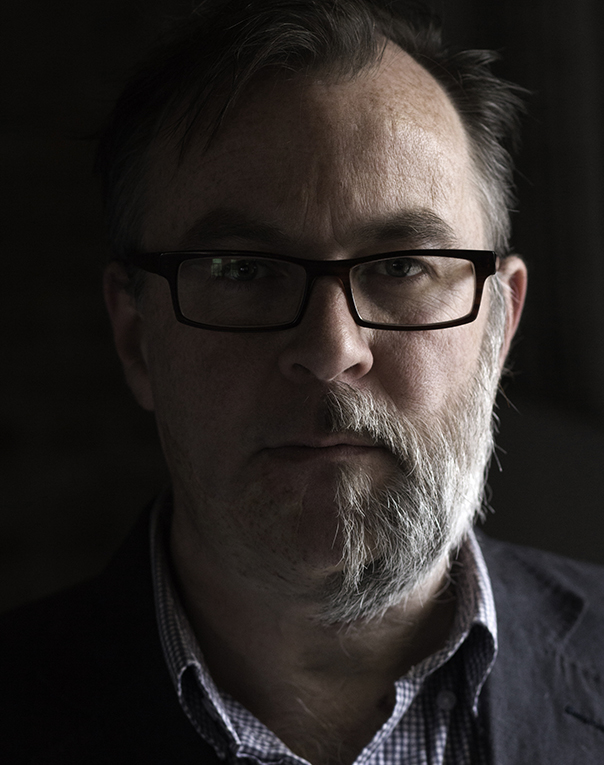INTERVIEW: Dead Can Dance collaborator Jules Maxwell is a musical travel agent

Jules Maxwell, courtesy Tony Wadham.
Cathedrals serve a special purpose in culture to lift people from the mindless drudgery of their everyday lives and connect them to something bigger. Mosh pits serve the same purpose, but the calm of the cathedral delivers this transcendence without bruised ribs or losing a just-bought band T-shirt. Keyboardist and composer Jules Maxwell has been creating music to beam listeners out of daily routines for more than 30 years. Maxwell’s recent collaboration with Dead Can Dance vocalist Lisa Gerrard, Burn, is just his most recent foray into the tabernacles of the inner ear.
Maxwell is as much an architect as he is a musician, creating sonic spaces that make you feel like you should’ve probably dressed a little better and done your hair before throwing on the record.
He began writing music for the stage in the late ’80s before branching out and composing scores for Irish dance troupe Daghdha Dance Company, as well as the fledgling Moving Still animation house. In the early 2000s, Maxwell began collaborating with Brendan Perry, half of legendary Australian lush-core duo Dead Can Dance, eventually becoming the band’s touring keyboardist during in 2012 tour. In 2015 Maxwell began working with Gerard, first for a 2018 collaboration with Eastern European women’s choir The Mystery of the Bulgarian Voices, for an album titled BooCheeMish.
“One of the issues that I had writing for them was was the whole language thing. You know, I don’t speak Bulgarian,” Maxwell said over a recent video call from his flat in London.
Luckily, he spoke the universal language of musical bliss, and his lack of familiarity with Bulgarian no doubt added to the collaboration’s out-of-this-world sound and feel. He later revisited some of the unused music from the collaboration.
“Some of the material that we had gathered in Australia in 2015, I thought [to] myself, ‘You know there’s there’s some interesting stuff in here that we haven’t used,'” he said.
In 2018 Jules Maxwell employed the talents of producer James Chapman (who’s released his own music under the name Maps).
“The whole sound of the album has as much to do with James Chapman as it has to do with me,” Maxwell said. “I put some stems together and bumped them up to him and James did a brilliant job on that one track, and then we subsequently tried another, and another.”
Maxwell and Chapman set out to create lush soundscapes for Gerard’s otherworldly vocals.
“Working to … the rhythms of her voice, the voice led me in directions that I just had to follow my nose,” he said. “James created a kind of sonic environment, which I was delighted with because to me, it sort of sounded quite retro; like early Vangelis with a touch of the East to it.”
In fact, Gerard’s powerful voice dictated most of the musical decisions Chapman and Maxwell made.
“It’s difficult to work with Lisa’s voice and for it not to end up in some epic thing,” Maxwell said. “It’s no coincidence that she ends up making soundtracks for ‘Gladiator’ and big-sounding things.”
But in order to capture the timeless vibe of Burn‘s music, Maxwell and Chapman used a variety of tools both modern and vintage. The former used Pro Tools with digital plugins while latter set up vintage synths in his studio. Maxwell also used musical materials created by other Dead Can Dance collaborators, such as percussive loops created by percussionist David Kuckhermann.
It’s not just new and vintage instrumentation that have to work together in this musical setting. Burn also blends an almost-overwrought intensity with fairly simple musical elements.
“One of the really interesting things for me as a composer is just to always acknowledge how simple much of that music is. And that simplicity for me is kind of the holy grail,” Jules Maxwell said.
Last March Maxwell also released an album of piano music for the theater, titled Nocturnes.
“Like Burn, Nocturnes never began life with the intention of becoming an album,” he said. “I was working for a dance troupe in Brighton, and Charlotte Vincent, their choreographer, invited me to create some very quiet piano. I just loved these pieces and asked her if I could collect them on an album.”
Maxwell is also hard at work on another musical collaboration with The Cure drummer Jason Cooper. He described it the project, recorded in London, as being like The White Stripes…. if Jack White traded in his guitar for a piano.
Follow writer David Gill at Twitter.com/songotaku and Instagram/songotaku.
